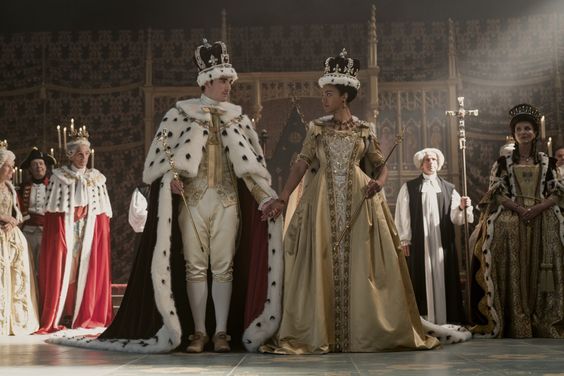
Introduction: The Mysterious Legacy of Queen Charlotte’s Children
Queen Charlotte, the wife of King George III, had a truly remarkable family life, though many are unaware of just how large her family truly was. With 15 children to raise, Queen Charlotte’s offspring played significant roles in the royal family, with their own unique stories and destinies. From the marriage of her children into various European royal families to the lesser-known tragic tales, Queen Charlotte’s legacy is deeply intertwined with the fates of her children.
But who were these 15 children, and what happened to each of them? Let’s explore the fascinating lives and legacies of Queen Charlotte’s children and their impact on European history.
Who Was Queen Charlotte? A Quick Overview
Before we delve into her children’s stories, it’s essential to understand the background of Queen Charlotte herself. Born in 1744 in Germany, Charlotte of Mecklenburg-Strelitz married King George III of Great Britain in 1761. Over the course of their marriage, Charlotte and George had 15 children, a remarkable feat for any royal couple.

Charlotte’s children were born at a time when royal families had to maintain political power through marriage alliances and dynastic continuity. As such, the children of Queen Charlotte were not just heirs to the British throne; many of them formed alliances across Europe, helping shape the future of several royal houses.
The 15 Children of Queen Charlotte and King George III
Queen Charlotte’s children came from a union that spanned more than five decades. Each child had their own journey, with some playing prominent roles in history, while others faded into obscurity. Here’s an overview of each of her children:
1. George IV (1762-1830)
The Prince Regent and King of the United Kingdom
George IV, born in 1762, was the eldest son of Queen Charlotte and King George III. He is perhaps the most famous of her children due to his turbulent reign and larger-than-life personality. George IV became Prince Regent when his father, King George III, was incapacitated due to mental illness, and later ascended to the throne in 1820.
His reign was marked by extravagance and indulgence, as well as his inability to maintain a stable relationship with his wife, Caroline of Brunswick. Despite his flaws, George IV played a crucial role in shaping British culture during the Regency era, promoting art, architecture, and fashion.
2. Frederick, Duke of York (1763-1827)
The Second Son with a Military Legacy
Frederick, born in 1763, was the second son of Queen Charlotte and King George III. Known as the Duke of York, he had a distinguished military career, becoming the Commander-in-Chief of the British Army. Although he was popular with the troops, his personal life was marred by scandal, including allegations of infidelity.
Despite these controversies, Frederick’s legacy lived on through his contributions to the British military system, which was reformed during his time. He died in 1827 without any legitimate heirs.
3. William IV (1765-1837)
The Sailor King Who Ascended the Throne
William IV, born in 1765, was the third son of Queen Charlotte. Before becoming king, William was a naval officer, serving in the Royal Navy during the Napoleonic Wars. He became King of the United Kingdom in 1830 after the death of his elder brother, George IV.
Known as the “Sailor King,” William IV was considered more practical and less indulgent than his predecessors. His reign saw the passing of the Reform Act of 1832, which extended voting rights to more citizens and reformed the British electoral system. William IV died without surviving children, passing the throne to his niece, Queen Victoria.
4. Charlotte, Princess Royal (1766-1828)
The First Daughter Who Married Into German Royalty
Charlotte, born in 1766, was the eldest daughter of Queen Charlotte and King George III. She married Prince Frederick of Württemberg, becoming a princess of Germany. Although Charlotte spent much of her life away from the British court, she had a strong influence on European royal circles. She had several children, further strengthening the ties between the British and German royal families.
5. Edward, Duke of Kent (1767-1820)
Father of Queen Victoria
Edward, born in 1767, was the fourth son of Queen Charlotte and King George III. Although Edward had a relatively quiet life in the British Army, his most significant legacy was his daughter, Queen Victoria. Edward married Princess Victoria of Saxe-Coburg-Saalfeld, and their daughter would go on to become one of the most famous monarchs in British history.
Edward died young, in 1820, but his daughter, Queen Victoria, became one of the longest-reigning British monarchs, marking the beginning of the Victorian era.
6. Augusta, Princess of Wales (1768-1840)
A Life Filled with Intrigue and Scandal
Born in 1768, Augusta was the sixth child of Queen Charlotte. She married Prince Frederick of Prussia, and like many royal marriages of the time, it was politically motivated. Augusta’s life was filled with intrigue, as she often found herself caught in the tensions between her royal duties and her desire for personal freedom. Despite the challenges she faced, Augusta remained an important figure in European royalty.
7. Elizabeth, Queen of the United Kingdom (1770-1840)
A Key Diplomatic Figure in European History
Elizabeth, born in 1770, was the seventh child of Queen Charlotte and King George III. Known for her diplomatic skills, Elizabeth never married, but she played a significant role in European royal circles. Her influence was particularly felt in her relationships with other European royals, whom she often visited and hosted.
8. Ernest Augustus, Duke of Cumberland (1771-1851)
Controversial Figure in Royal History
Ernest Augustus, born in 1771, was another one of Queen Charlotte’s sons who became embroiled in controversy. He became the Duke of Cumberland and was a key figure in the British royal family. Ernest Augustus was involved in numerous legal battles and scandals, including a notorious dispute with his niece, Queen Victoria. Despite his controversial reputation, Ernest Augustus played an important role in shaping the royal family’s legacy.
9. Augustus Frederick, Duke of Sussex (1773-1843)
A Rebel Royal Who Challenged Tradition
Augustus Frederick, born in 1773, was the eighth son of Queen Charlotte and King George III. Known for his progressive views, Augustus challenged many royal traditions and was an advocate for the rights of women and religious freedom. Although he was denied the throne, his contributions to social reform were significant.
10. Adolphus, Duke of Cambridge (1774-1850)
A Prominent Military Leader
Adolphus, born in 1774, served as a British Army officer and was known for his service during the Napoleonic Wars. Though he never became king, Adolphus was an influential figure in the British military, and his legacy is still felt today.
11. Mary, Princess Royal (1776-1857)
Married Into German Royalty
Mary, born in 1776, was another daughter of Queen Charlotte who married into European royalty, specifically to the Duke of Gloucester. Like her siblings, Mary spent much of her life outside the public eye but was involved in royal duties and social events.
12. Sophia, Princess of the United Kingdom (1777-1848)
A Life in the Shadows
Sophia, born in 1777, lived a quieter life compared to her siblings. Though she never married, Sophia remained active in royal affairs and is known for her charitable work, particularly for the poor and less fortunate in England.
13. Octavius, Prince of the United Kingdom (1779-1783)
A Tragic Death at a Young Age
Octavius, born in 1779, died tragically young at the age of four. His death was a significant blow to the royal family, as his passing was one of the first instances of child mortality in the royal family that would deeply affect Queen Charlotte and King George III.
14. Alfred, Prince of the United Kingdom (1780-1782)
Another Tragic Loss for the Royal Family
Alfred, born in 1780, died in infancy at just two years old. His death, along with that of Octavius, deeply affected Queen Charlotte, who had already faced numerous challenges in her marriage and royal duties.
15. Amelia, Princess of the United Kingdom (1783-1810)
The Last of Queen Charlotte’s Children
Amelia, born in 1783, was the youngest of Queen Charlotte’s children. She tragically died in 1810 at the age of 27. Amelia’s death was particularly hard for Queen Charlotte, who had been closely bonded with her youngest daughter.
Conclusion: The Legacy of Queen Charlotte’s 15 Children
Queen Charlotte’s children were integral to the development of the British royal family and European history. While some rose to power and fame, others faced personal struggles and tragedies. Together, they represent the complexities of royal life—full of both grandeur and sorrow. Queen Charlotte’s legacy lives on not just through her children’s titles and marriages, but through the profound influence they had on shaping European monarchy and the social fabric of their time.
FAQs
- Did Queen Charlotte’s children marry into other royal families? Yes, many of Queen Charlotte’s children formed alliances with other European royal families through marriage, strengthening diplomatic ties across Europe.
- Who succeeded Queen Charlotte’s eldest son, George IV? George IV’s younger brother, William IV, succeeded him as king of the United Kingdom after George IV’s death in 1830.
- Why did Queen Charlotte have so many children? Queen Charlotte had many children because of the royal tradition of securing alliances and heirs to the throne, as well as her strong Catholic faith, which encouraged large families.
- What happened to Queen Charlotte’s children who didn’t inherit the throne? Many of Queen Charlotte’s children led diplomatic and military lives, while others focused on charitable work, as seen in the lives of Princess Elizabeth and Prince Augustus Frederick.
-
Why was Octavius’s death significant? Octavius’s death was a tragic moment in the royal family, as it marked the first major loss of a child for Queen Charlotte and King George III, affecting the family deeply.